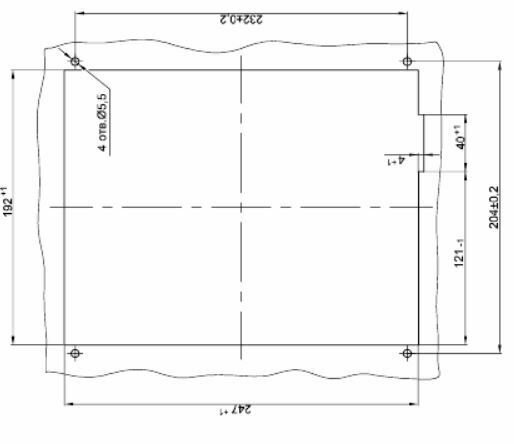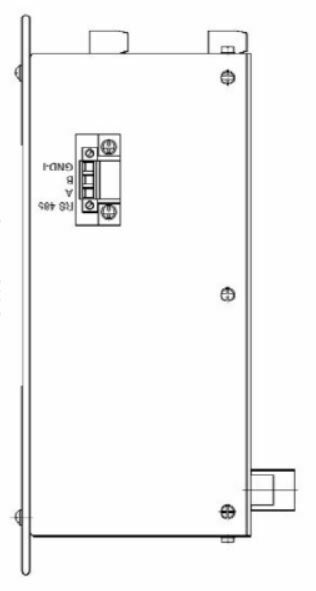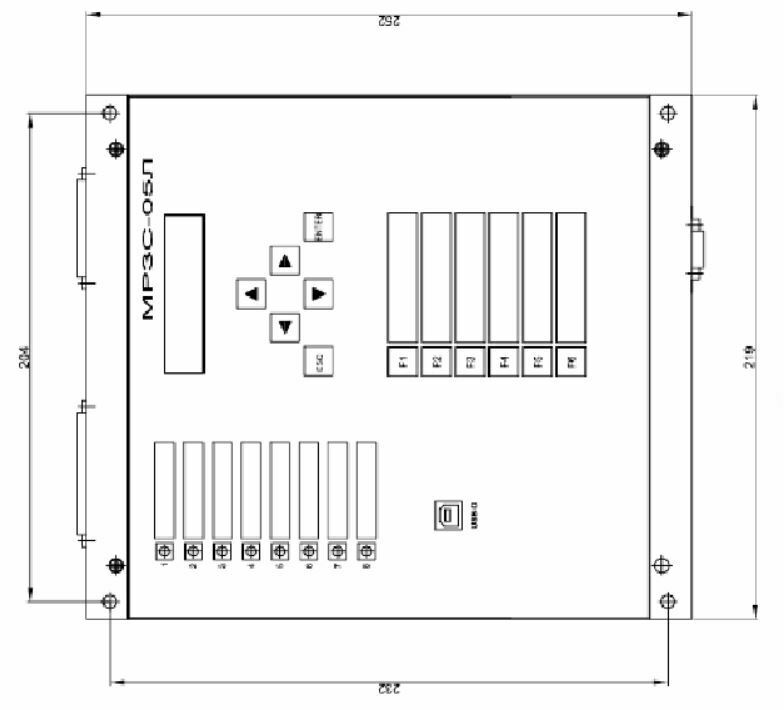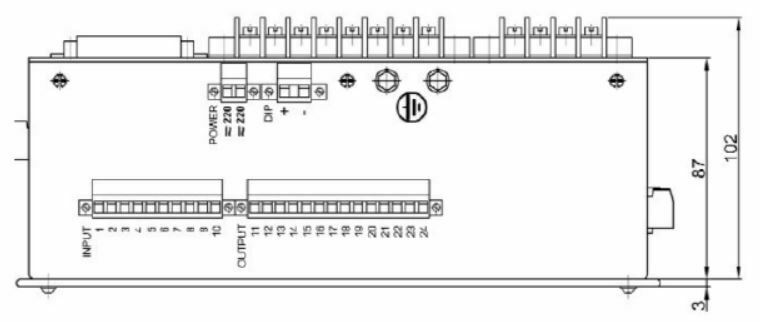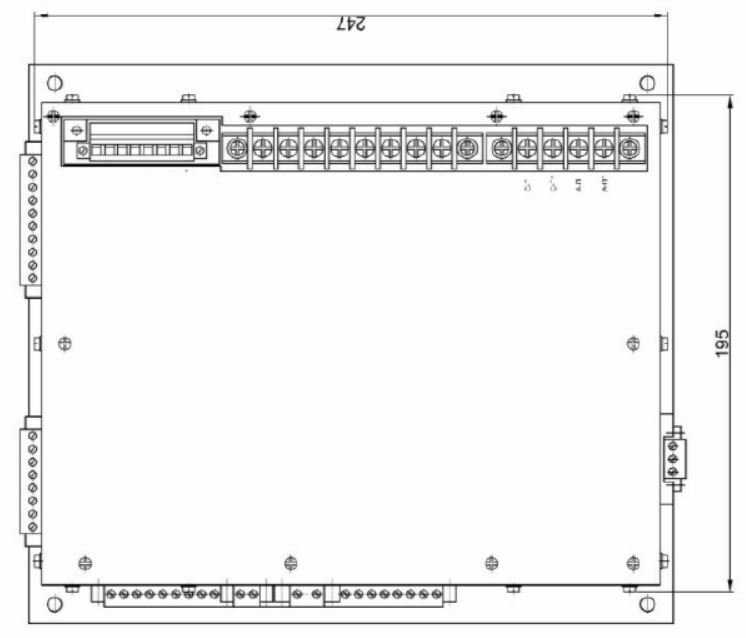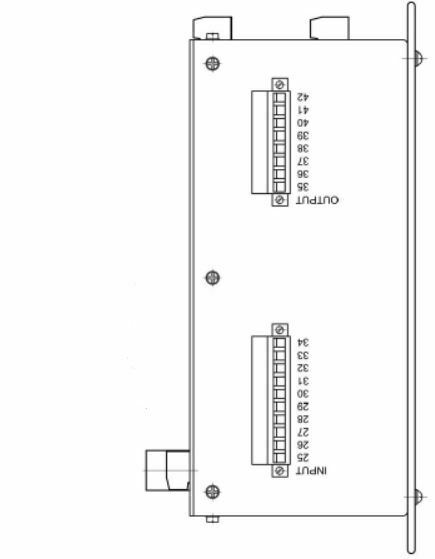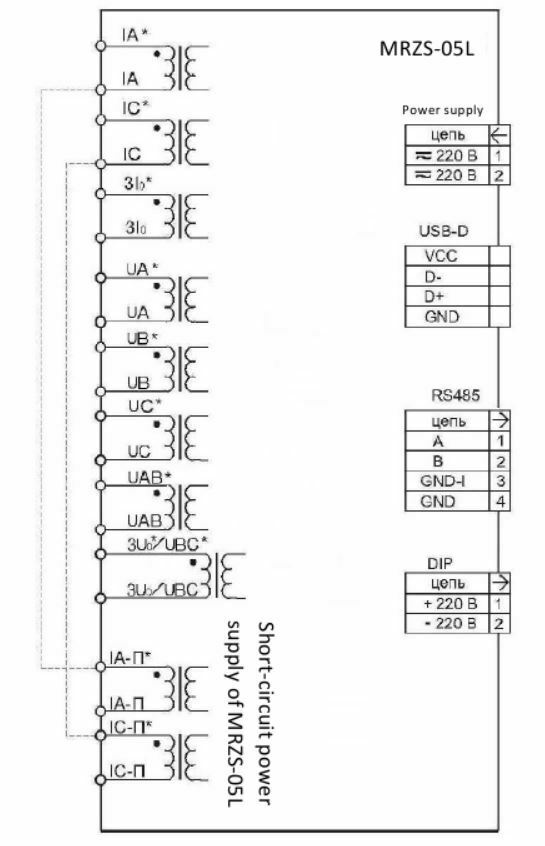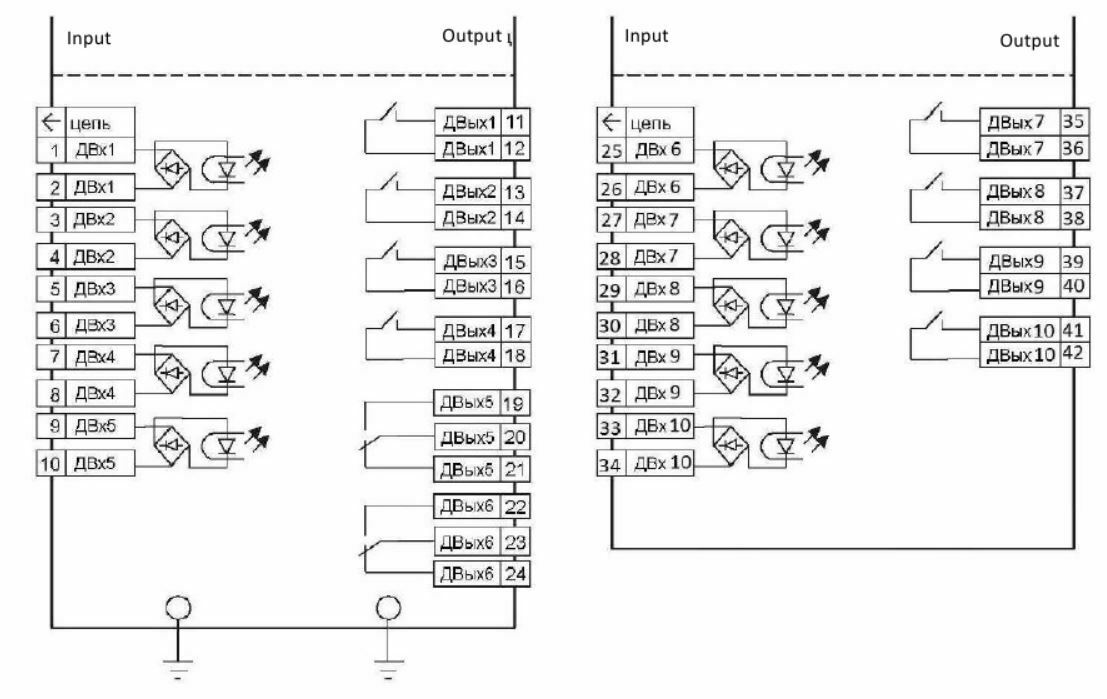MРЗС-05Л AИAР.466452.001-12
(for reclosers, rear connection, 2 phase current sensors, with ACB, DI power supply) Are used as: - basic protection of inputs, busbar coupleres and feeder cable and overhead lines with isolated, compensated and deadly grounded neutral; - backup protection; - main protection with the function of ACB on the busbar coupler, as well as on the reclosers.
It performs the following functions:
Provides control and measurement of the following values:
- phase currents Ia, Ic, Ib - from 0,1 to 30 Iн (Iн = 5 А);
- current of one phase of 0.4 kV connection - from 0.5 to 150 A);
- zero sequence current - from 0.01 to 2 A;
- three phase or line voltages - up to 150 V;
- zero phase-sequence voltage - up to 150V;
- line voltage of the standby line - up to 150 V (only in -12 and -32);
- angles between all analog measurements of the main line;
- network frequencies;
- active power with a sign;
- reactive power with a sign;
- full power;
- power factor;
- interphase active and reactive resistances.
Relay protection functions:
- four-stage overcurrent protection (OCP), has the following stages:
- 1 - stage with definite time delay (current pinch-off), or with the possibility of a voltage triggering, or directional OCP with an independent time delay;
- 2 - stage with definite time delay with the possibility of voltage triggering or with a time-dependent delay (in accordance with IES 255-4 types A, B, C, RТ-80, RТV-1 characteristics), or directional OCP with an independent time delay;
- 3 - stage with a definite time delay (overload protection) with the possibility of voltage triggering or directional OCP;
- 4 - directi stage with a definite time delay (overload protection) with the possibility of voltage triggering or onal OCP.
- Directional ground fault protection (DGFP) - with the choice of the direction of action and the possibility of switching to non-directional (with respect to the current 3Io or voltage 3Uo) or to a non-directional by the sum of the higher harmonics 3Io.
- two-stage undervoltage protection with the ability to control the current and the inclusion of triggers for AND or OR.
- two-stage overvoltage protection with the inclusion of triggers for AND or OR.
- negative phase-sequence protection (NPSP), reacts to the ratio of the negative sequence current to the direct sequence current (phase failure monitoring (PFM));
- arc fault protection (AFP): start of AFP is carried out through a discrete input from an external arc protection sensor with the ability of current control;
- circuit-breaker failure protection (CBFP) with current control: CBFP is initiated when cut-off tripping events or via a binary input. CBFP has two stages in response time.
- implementation of busbar protection scheme (BPS).
Automation functions:
- four-time recloser (AR). The AR is started from OCP. Provides the ability to block reclosing through a discrete input;
- automatic frequency load shedding (UFLS with FAR) (in -12 and -32 - from two inputs);
- automatic transfer switch (ATS);
- multiple automatic reclosing when disconnected from the undervoltage protection;
- circuit breaker control. The circuit breaker can be switched on and off both from the device and via a discrete input (pulsed). If there is a command to cut off the circuit breaker, the on signal is blocked;
- acceleration of OCP after the switch is turned on, or if the second stage of the OCP is forced into the accelerated mode.
- voltage control of both sections (only in -12 and -32);
- circuit breaker closing and opening monitoring;
- control of commutation life of switch.
Defined functions, triggers and logical elements:
- number of defined functions - 8;
- number of defined triggers - 4, The status of triggers is stored in non-volatile memory;
Emergency registrar of oscillograms of currents with recording of discrete signals:
- parameterizable duration of pre-emergency and emergency recording.
- resolution of the recorder by analog signals - not more than 1.25 ms.
- total recording time - 66 s.
Discrete event recorder:
- 48 recent events,
- up to 43 entries in each accident with a discreteness in time - 1 ms,
- for each accident the following are recorded:
- all discrete signals with fixation of arrival and departure time;
- maximum values of phase current with the fixation of remaining currents and voltages;
- maximum value of the current 3Io with the fixation of the remaining currents and voltages;
- maximum value of the voltage 3Uo with the fixation of the remaining currents and voltages;
- maximum value of the ratio of the current of the negative sequence to the current of the direct sequence with the fixation of the remaining currents and voltages;
- maximum value of phase or line voltages with fixation of remaining currents and voltages;
- minimum value of phase or linear voltages with fixation of remaining currents and voltages;
- minimum value of frequency Р1 with fixation of remaining currents and voltages;
- minimum value of frequency P2 with fixation of remaining currents and voltages;
- value of frequency Р1 with fixation of remaining currents and voltages at the moment of FAR operation;
- value of frequency Р2 with fixation of remaining currents and voltages at the moment of FAR operation.
Energy metering:
- active energy - in two directions;
- reactive energy - in four quadrants
Determining the fault location.
Four groups of settings for all protections.
Short-circuit currents auxiliary power supply If the power supply of the device at the power input of 220 V (or 110 V) The device can be powered from current transformers of phases A and C. In this case, the magnitude of the current must be 4 A or more for one of the phases or for the total of two phases.
Binary inputs feeding from internal source - from the DIP output, two discrete inputs can be energized
Number of freely programmable inputs, outputs, indicators:
- discrete inputs - 10, with the possibility of autonomous power supply of a discrete input;
- discrete relay outputs - 10, without and with the memorization, realization of ShMS;
- LED indicators - 8, with and without memory.
- All inputs, outputs, indicators are freely programmable.
- Multilingual menu - 3 languages supported.
- Provides input-output from the work of all protections or their individual stages.
- Six freely programmable buttons.
- Work with an external computer is carried out through the USB port.
- For the device to work in the local network interface RS-485 is provided.
- Communication protocol - ModBus RTU. In MRZS-05L (-12) (-32) optional – IEC 06870-5-104.
Software WisiNet_2 for МРЗС-05Л, МРЗС-05Д, MRZS
Please pay attention! Many new versions of devices have been added for corrective work, the program must save the /data folder (with your archives), delete the WisiNet2 installation program, download the archive from the website and install the Wisinet2 program and replace the new /data folder with your previous oneDownload Wisinet 2
If you have a version of the WisiNet_2 program higher than v.22.1, you can simply update the jar fileUpdate programm Wisinet 2 download




